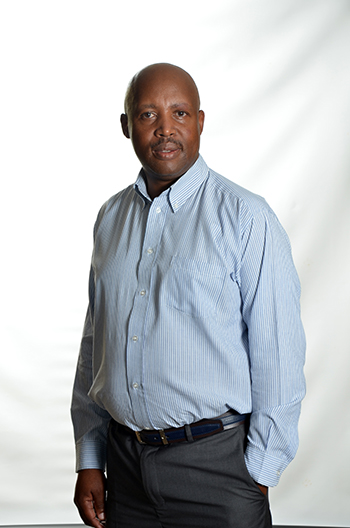Latest News Archive
Please select Category, Year, and then Month to display items
04 April 2024
|
Story Lunga Luthuli
|
Photo SUPPLIED
 Dr Juliet Kamwendo champions gender-inclusive climate action in Africa. Her expertise at the recently held AFR100 workshop highlighted vital steps towards sustainable and equitable development.
Dr Juliet Kamwendo champions gender-inclusive climate action in Africa. Her expertise at the recently held AFR100 workshop highlighted vital steps towards sustainable and equitable development.
Dr Juliet Kamwendo, Lecturer and Programme Director for Gender Studies in the Centre for Gender and Africa Studies at the University of the Free State, is spearheading efforts to integrate gender considerations into Africa's climate restoration agenda. Reflecting on her involvement, Dr Kamwendo stated, "This is particularly crucial, as women make up almost 50% of the population in Africa, and the depletion and degradation of land affect them disproportionately."
She recently served as a gender expert at the AUDA-NEPAD AFR100 workshop in Ouagadougou, Burkina Faso, from 25 to 29 March 2024. This initiative aims to restore forests and degraded land across Africa by 2030, with a focus on gender equality.
The workshop emphasised the integration of gender perspectives into the AFR100 project, acknowledging the disproportionate impact of land degradation on women. Dr Kamwendo's expertise highlighted the need to empower women in climate change interventions, addressing existing gender inequalities exacerbated by environmental degradation.
“Women – who are primarily responsible for household food security and water provision – bear the brunt of environmental degradation, leading to increased workloads, reduced income opportunities, and heightened vulnerability to climate-related disasters. Furthermore, the loss of forest cover and biodiversity further exacerbates the challenges faced by women, particularly in rural areas where they depend heavily on natural resources for their livelihoods,” added Dr Kamwendo.
Her participation highlights academia's crucial role in fostering inclusive and sustainable development, emphasising interdisciplinary collaboration to tackle complex environmental challenges. Through initiatives such as AFR100, stakeholders are working towards a more resilient and gender-responsive future for Africa.
Meet our Council: Mr Rantooa Moji – passionate about the welfare of workers
2017-07-07

Mr Rantooa Moji, member of the UFS Council
Photo: Stephen Collett
Mr Rantooa Moji has recently joined the UFS Council by virtue of being chairperson of the university’s Institutional Forum (IF). The IF’s function is to advise Council in accordance with the Higher Education Act and UFS Statute.
Born and bred in Qwaqwa, Mr Moji is a junior lecturer in Chemistry at the university. He completed his BSc (Hons) in Chemistry at the then UNIN (Qwaqwa), which is now part of the UFS. He also completed an MA (HES) at the University of the Free State.
Fascinated with Chemistry
“I pursued science mainly due to my school background, but I also have a keen interest in the subject. The diverse applications of Chemistry in daily life have always fascinated me and that is why I chose to pursue it,” he says.
During his postgraduate studies at the UFS, Moji was exposed to education and management trends in higher education. He has subsequently become involved with labour relations issues through the personnel union Nehawu. He says he has a passion for the welfare of workers and therefore fulfils a number of roles in the union, including representing members in disciplinary and grievance hearings, being part of the negotiations team, and representing the union on a number of institutional committees, such as the Health Care Committee.
Passion for worker’s welfare
Says Mr Moji: “I feel that my experience as an academic and a union activist puts me in good stead to ensure that the views and aspirations of employees are taken into account in the Council’s deliberations and decision-making.”
Mr Moji is married, with two daughters and one son.